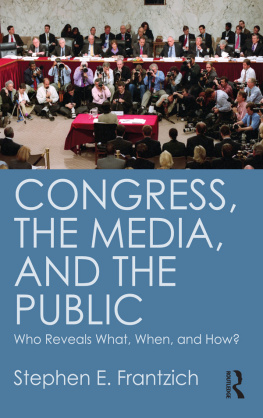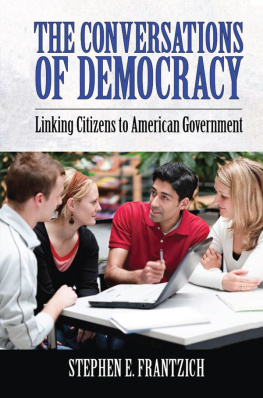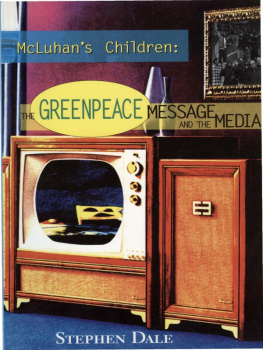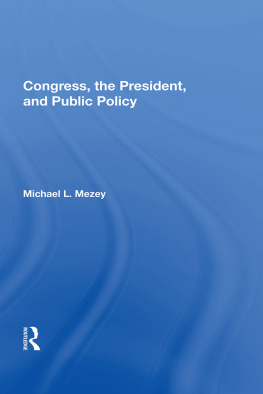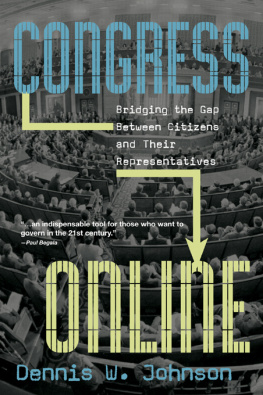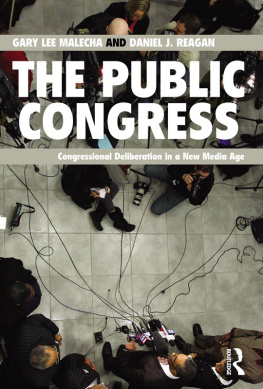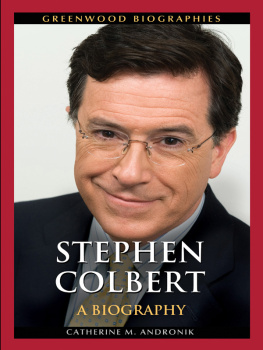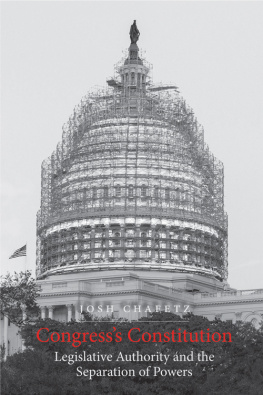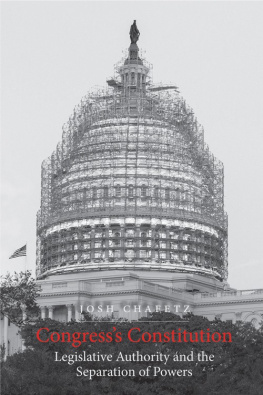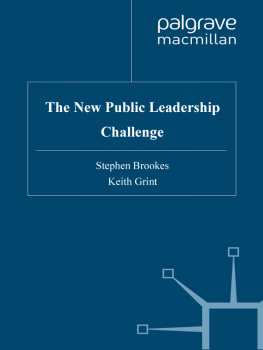Congress, the Media, and the Public
From the beginning of the Republic, members of Congress have been in the media spotlight. In recent years, the expansion of media venues has provided both challenges and opportunities to representatives and senators, the public, and even the media themselves. Legacy media such as newspapers and broadcast television each carry with them their own needs and accepted usages affecting the kind and volume of news about Congress delivered to the public. These sources still serve important roles for much of the public and are covered here. This book goes beyond the traditional legacy media to include Congress portrayal on live television, in political cartoons, in film, as a part of the emerging infotainment venues, and through social media such as web pages, Facebook, and Twitter. We increasingly live in a world where the lines between traditional news and other sources of information have been erased.
This is an exciting, if challenging, time for Congress, the media, and the public as each attempts to sort out the new media environment and employ it to its advantage. Using a comprehensive analysis of previous research, dozens of interviews, and the inclusion of empirical data, this book assesses the current status of the relationship between Congress and the media and sorts out the temporary changes from those likely to represent future trends. Whether one is associated with Congress, is an interested citizen, or is part of the media industry, understanding the relationships and developments between and among them is key to understanding how the public behaves in relation to Congress, and vice versa.
Stephen E. Frantzich is Professor of Political Science at the U.S. Naval Academy, where he was selected as outstanding civilian professor in 1990. He is the author of over two dozen books and has served as a consultant to the U.S. Congress, Dirksen Center, C-SPAN, and a variety of foreign parliaments. He was one of the pioneers in the study of the impact of information technology on American politics. In his spare time, he runs Books for International Goodwill (www.big-books.org), which has distributed over 7 million books to underserved populations around the world.
First published 2016
by Routledge
711 Third Avenue, New York, NY 10017
and by Routledge
2 Park Square, Milton Park, Abingdon, Oxon, OX14 4RN
Routledge is an imprint of the Taylor & Francis Group, an informa business
2016 Taylor & Francis
The right of Stephen E. Frantzich to be identified as author of this work has been asserted by him in accordance with sections 77 and 78 of the Copyright, Designs and Patents Act 1988.
All rights reserved. No part of this book may be reprinted or reproduced or utilised in any form or by any electronic, mechanical, or other means, now known or hereafter invented, including photocopying and recording, or in any information storage or retrieval system, without permission in writing from the publishers.
Trademark notice : Product or corporate names may be trademarks or registered trademarks, and are used only for identification and explanation without intent to infringe.
Library of Congress Cataloging in Publication Data
Frantzich, Stephen E.
Congress, the media, and the public : who reveals what, when, and how? / Stephen
E. Frantzich.
pages cm
Includes bibliographical references and index.
1. United States. CongressReporters and reporting. 2. United States.
CongressPublic relations. 3. Press and politicsUnited States. 4. Mass
mediaPolitical aspectsUnited States. 5. Communication in politicsUnited
States. I. Title.
JK1128.F73 2016
070.44932873dc23
2015030078
ISBN: 978-1-612-05424-7 (hbk)
ISBN: 978-1-612-05425-4 (pbk)
Typeset in Sabon
by Out of House Publishing
Contents
Chapter 1
The Media and Representative Government
This is a book about the media and Congress. Three key rationales stand out for new effort to explain this relationship. First, previous books have limited their attention to relatively narrow media, ignoring the vast array of ways information about Congress enters the public consciousness. Second, both Congress and the media have undergone significant changes in the last few decades, challenging the context of many previous studies. Third, there is little question that Congress is in trouble when it comes to its public relations. Understanding how Congress is portrayed in the media may help Congress more effectively play its intended role in American democracy.
It is important to remember that the word media is plural. Individual media formats are transmission tools by which ideas, impressions, images, and feelings flow from a source to a recipient. Much research on Congress and the media focuses on traditional legacy media (print, radio, and television news) and emerging media (websites, Facebook, YouTube, and Twitter), but such a list should not imply full coverage of the multiple ways in which the public learns about Congress and its members. To this list we will add editorial cartoons, and gavel-to-gavel coverage on C-SPAN as well as a variety of popular culture entertainment venues. Even with these additions time and resources force us to largely bypass radio, theater, comic books, music, and a variety of other existing and emerging media.
Just as the various media present different content in different ways, the research tools herein will include a variety of approaches. Impressionistic data from interviews, empirical summaries, graphical presentations, and visual examples all will be relied upon. The analysis borrows heavily from the excellent research of others. A number of the research tools highlighted have been or could be used to analyze other political institutions and processes and it is hoped that usage here will encourage an expansion of our thinking and research. What the public knows about Congress and how it affects their behavior is important enough that we should not limit the media we look at or the approaches we use.
Democratic politics involve a series of conversations between the public and elected officials, facilitated, in part, by the media. Citizens express opinions on what government should be doing and how it should do it, while elected officials communicate back with guidelines for behavior (laws) and reports on their efforts. Useful conversations involve shared islands of understanding terminology, and knowledge which allows each partner in the conversation to assume some common understanding and to make the conversation interesting by adding some new information. In the extreme case, two people who have no knowledge of each others language are reduced to communicating with grunts and visual signals. On the other end of the spectrum, if two people know exactly the same things, there is no need to communicate. A good conversation emerges as a building process in which one partner signals a level of common knowledge and adds a relevant tidbit, to which the other partner reacts and adds their own unique contribution. In the congressional realm, a constituent may write, I read today that Congress is considering a new import tax on shoes. Let me tell you how that will affect my business. The member of Congress might write back,
Thank you for the insight. That bill has already passed in the House, but you might want to contact Senator Smith, since he is on the tax committee in the Senate and they have yet to take action. Since I hope to be on the conference committee, I would be willing to support the revised Senate version.
In this interchange, both partners have learned something.

